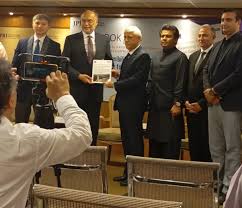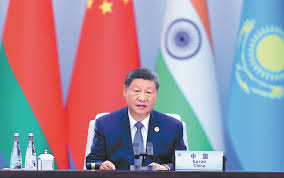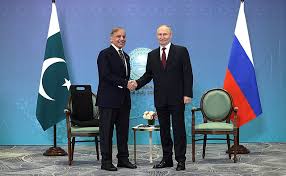China viewed as key partner in regional economic connectivity at IPRI book launch

Islamabad: China’s role in shaping regional economic connectivity was underscored at the Islamabad Policy Research Institute (IPRI) during the launch of a collaborative book titled “Examining the Feasibility of an East-West Economic Corridor for South and Central Asia: Views from India and Pakistan.”
The research book has been jointly produced by IPRI (Pakistan), the RAND Corporation (USA), and the Impact and Policy Research Institute (IMPRI) of India.
The event convened diplomats, policy experts, and regional scholars to assess the potential of the proposed East-West Economic Corridor (EWECA) – a bold initiative that seeks to strengthen trade, mobility, and cooperation between South and Central Asia.
Delivering the keynote, Federal Minister for Planning, Development and Special Initiatives, Ahsan Iqbal, pointed to the historical precedence of regional linkages through routes like the Silk Road. “Despite our shared past, we are now one of the least economically integrated regions globally,” he said. “We must move beyond aspirations and take actionable steps. China’s Belt and Road Initiative is an inspiring example of how infrastructure can lead to political and economic cooperation.”
Ahsan Iqbal highlighted how Pakistan is actively working to upgrade its border infrastructure under the “URAAN Pakistan” project. He emphasized the transformative potential of economic engagement.
Dr Rafiq Dossani from the RAND Corporation noted that trust-building is a prerequisite for any corridor to succeed. “Strategic plans alone are insufficient. What we need is gradual, step-by-step coordination, akin to ASEAN’s model,” he said, calling for sustained dialogue and phased cooperation.
The event also featured Ambassador of Kazakhstan to Pakistan, Yerzhan Kistifan, who described Pakistan as a potential regional connector. “For Central Asian nations, access to ports and open markets is vital. Pakistan can serve as a gateway—if it improves coordination in trade, media, and logistics.”
In his speech, Ambassador Dr Raza Muhammad urged India and Pakistan to adopt a more pragmatic approach to economic diplomacy. “Even in times of intense rivalry, global powers have maintained dialogue. South Asia should not be the exception,” he stressed.
Earlier, the event was inaugurated by Dr Raashid Wali Janjua, Director Research at IPRI.





